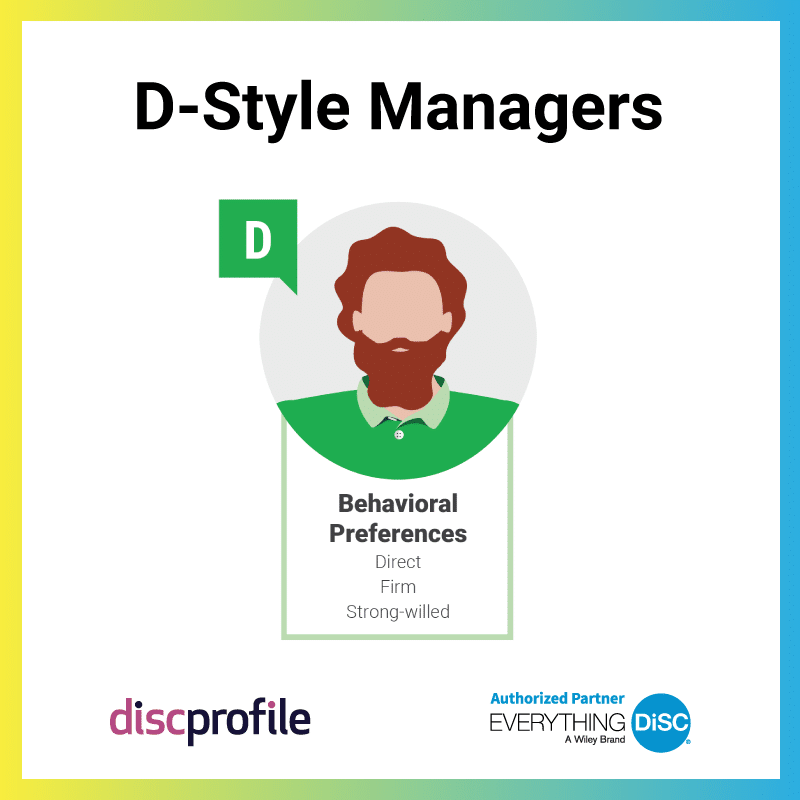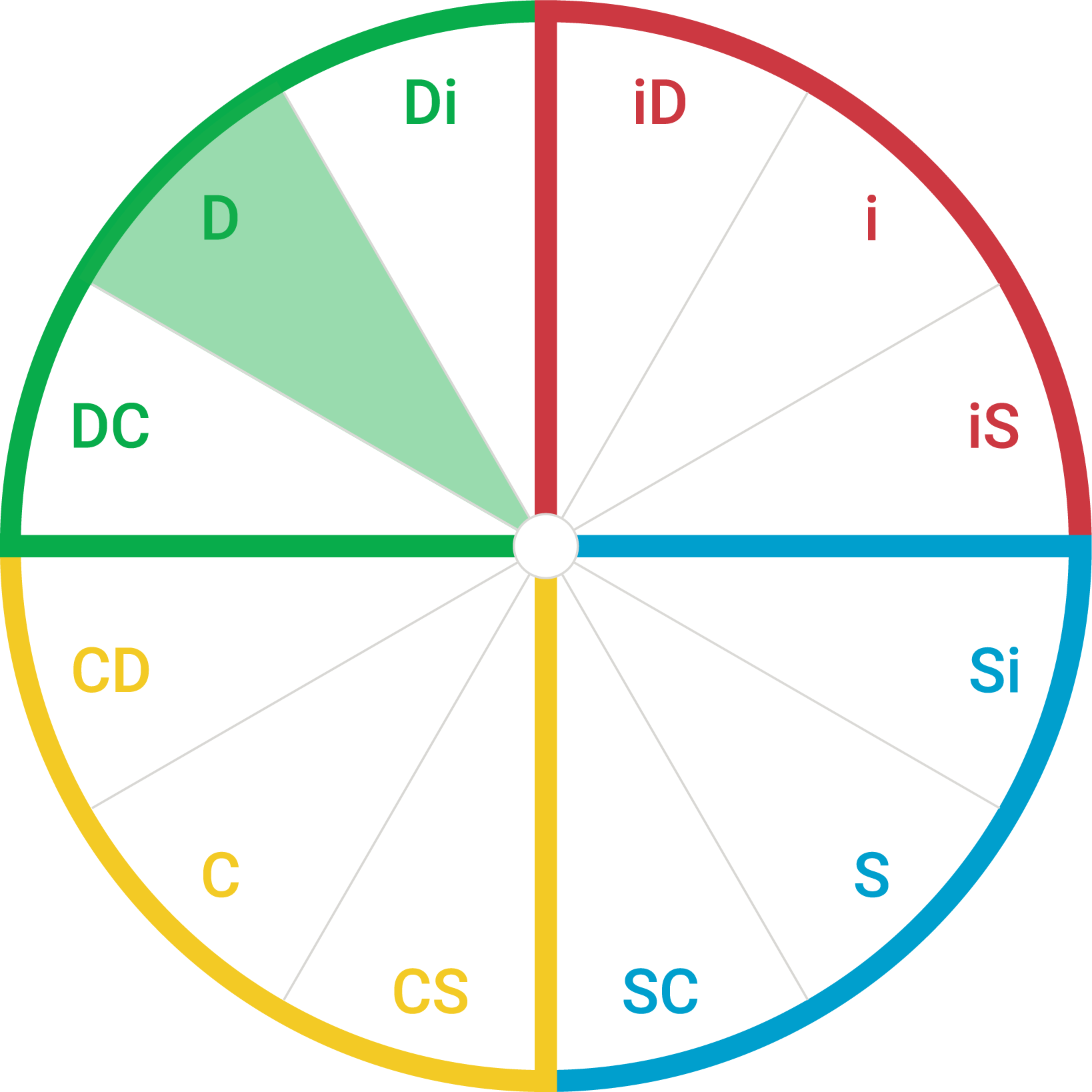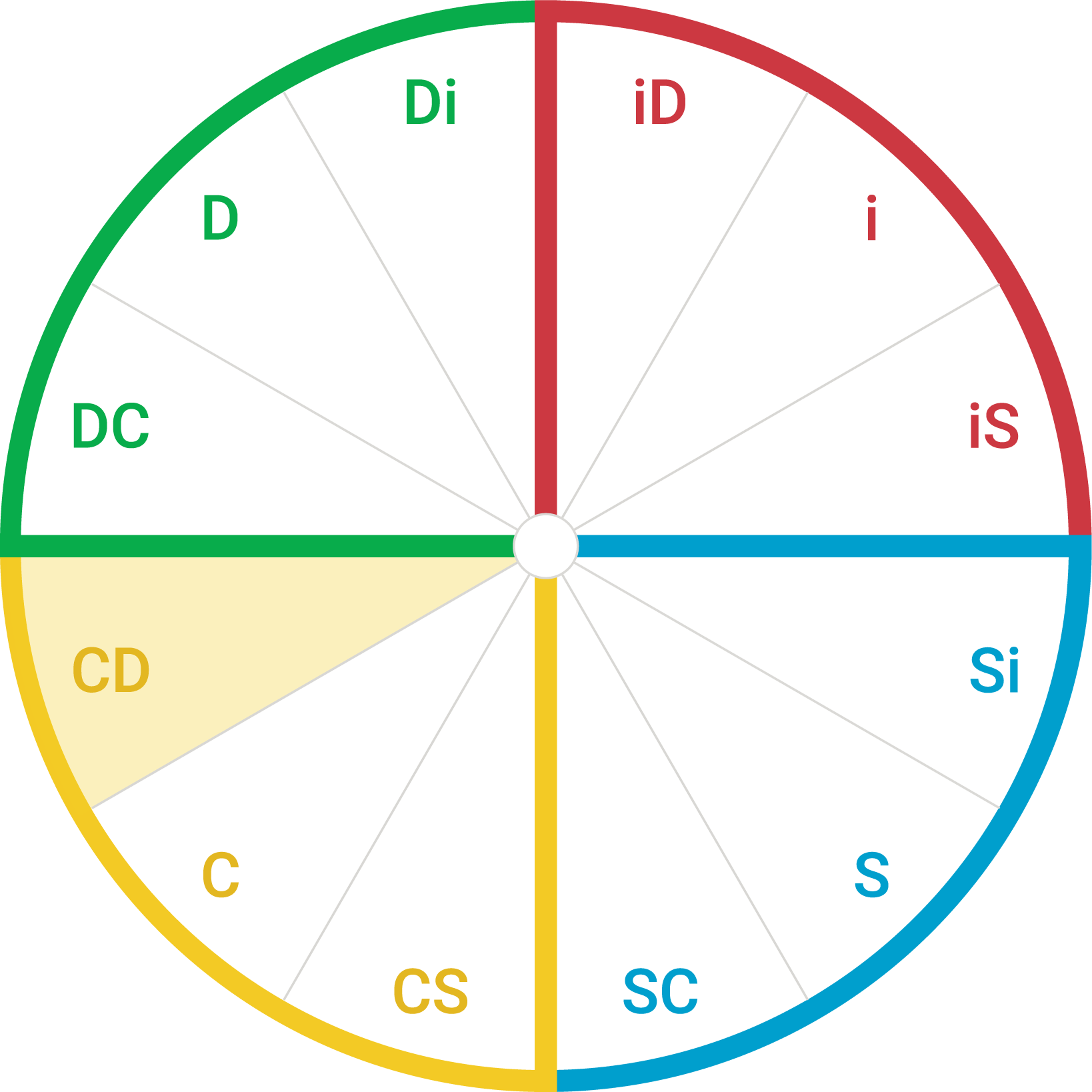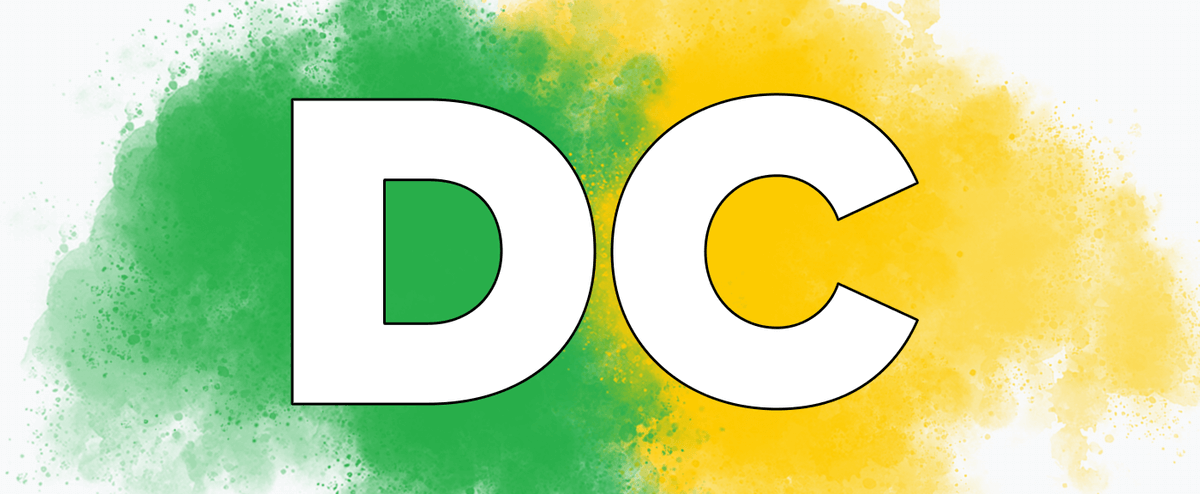
DC Style
People with the DiSC DC-style personality are often tough-minded and determined critical thinkers. They aim to be experts in their field. DC types value their autonomy and want to feel in control.
What do the ‘D’ and the ‘C’ in DiSC mean?
The D in the Everything DiSC® model stands for dominance and the C stands for conscientiousness. People whose DiSC profile shows a DC style display both the dominance of the D style and the conscientiousness of the C style. They are questioning and skeptical, and they tend to think through every possible solution in hopes of achieving results. They care about producing high-quality work, and often prefer to separate emotions from facts.
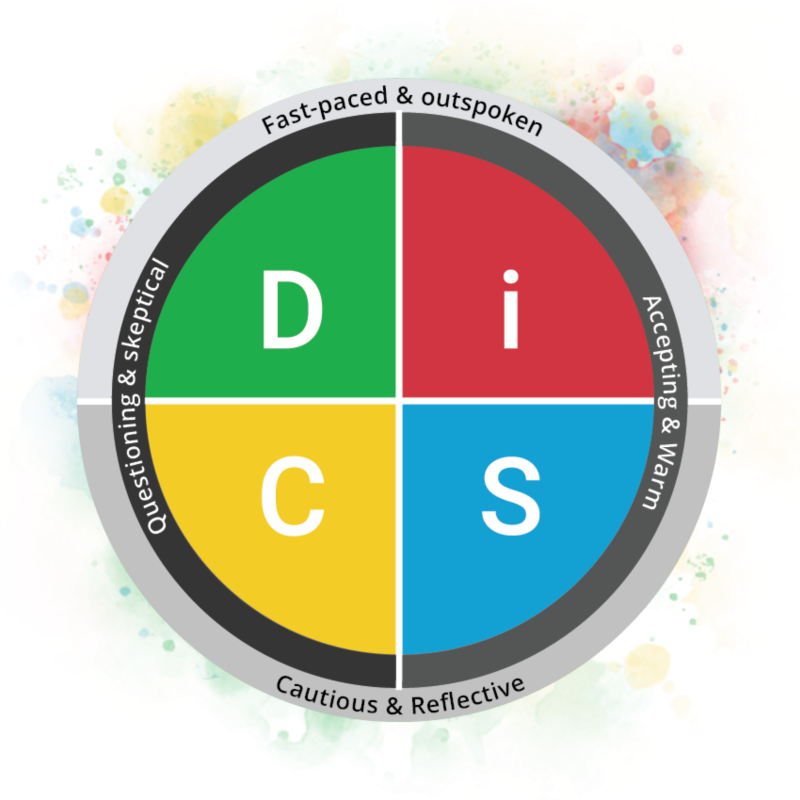
What is a DiSC style blend?
Everyone is a mixture of all DiSC styles, but most people tend toward one or two. While some individuals' DiSC assessment results will show a style with just one letter (D, i, S, or C), others will show a 2-letter style (DC, SC, iS, etc.).
These 2-letter styles are style blends, and they indicate that an individual's personality type falls near the border between two of the four main quadrants.
Everything DiSC assessment takers can see this clearly in their results by looking at where their dot is placed on the DiSC map. If your dot is close to the border with another style, you probably show traits associated with that style, as well. Thus, D styles often share characteristics with the C or i styles.
The Everything DiSC test is calibrated to help you discover which main DiSC style quadrant you fall into, and if your results show a blend, which style blend best fits you.
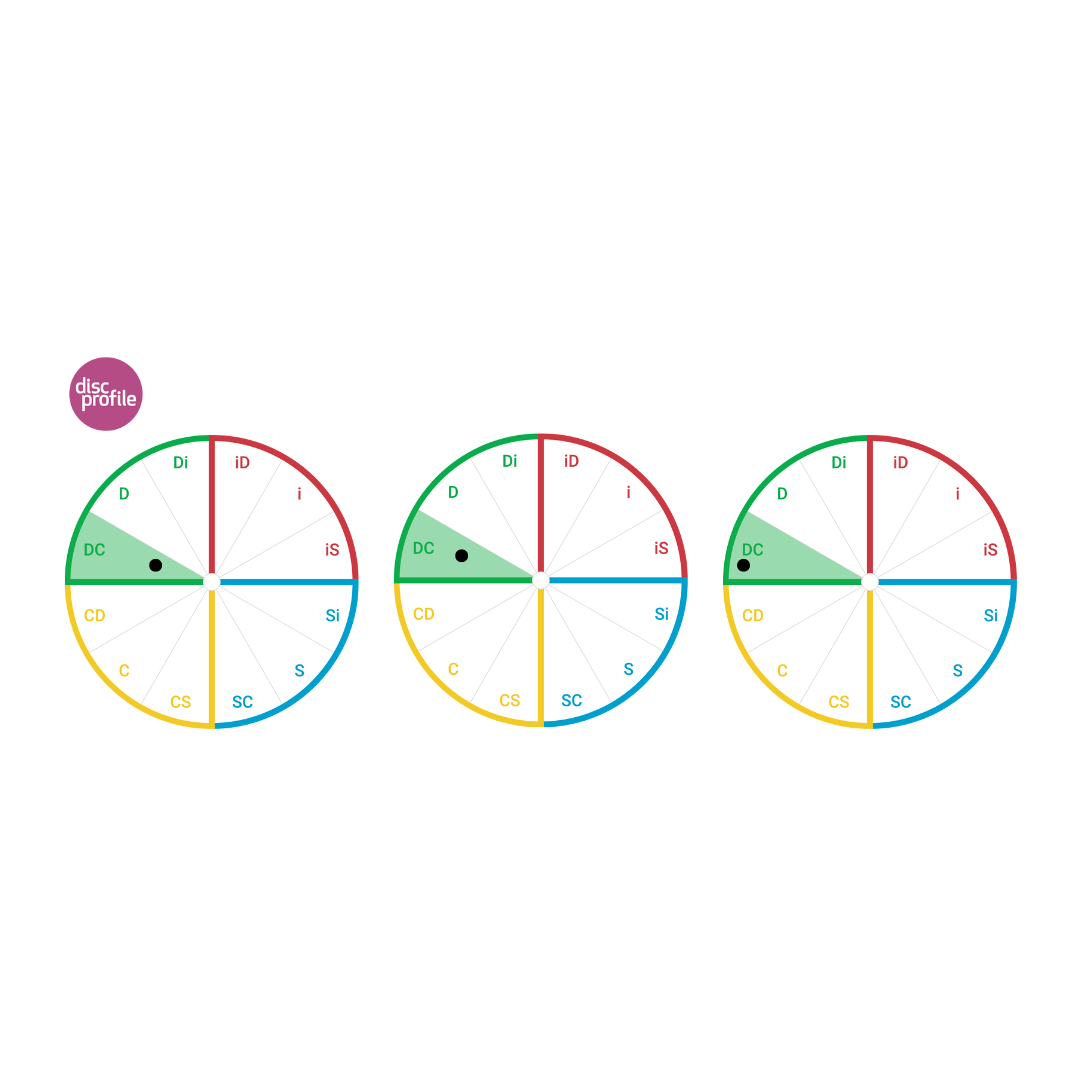
Dot placement
There's a lot of variety within each of the four main DiSC styles because human personality is so wonderfully varied! People with DC styles share many high-level traits, but each DC-style person manifests the style differently. The dot placement on your Everything DiSC profile will help you discover your unique place on the DiSC map.
For example, you might be strongly inclined to the DC style with your dot appearing on the far edge of the circle and between the D and C lines. Or you might be slightly inclined toward the style, with your dot appearing closer to the middle.
Learn more: DiSC dot and priorities explained
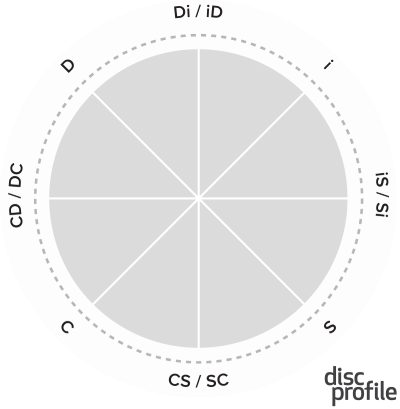
How do you get typed as a DC style in DiSC?
The DiSC model, at its foundation, is two-dimensional, measuring:
- pace (from fast-paced and outspoken to cautious and reflective)
- agreeableness (from questioning and skeptical to accepting and warm)
These two scales form the four primary DiSC quadrants.
However, these are just a starting place for the Everything DiSC assessment. This assessment will tell you not only your main DiSC style (D, i, S, or C) but which of the 12 style blends best represents you and how strongly you align with those traits.
A more detailed look at the DiSC map reveals both the four main quadrants and eight scales.
Everything DiSC assessments measure respondents on these eight scales: D (Dominance), Di/iD, i (influence), iS/Si, S (Steadiness), SC/CS, C (Conscientiousness), and CD/DC.
People with the DC style score highest on the CD/DC scale. Further, their responses show tendencies slightly more in line with the D style than the C style. People with D styles are assertive and achievement driven. C-style folks are logical and focused on accuracy. DC styles are a blend of the two, with a bit more D than C.
This is another way that Everything DiSC accounts for how varied our personalities can be!


